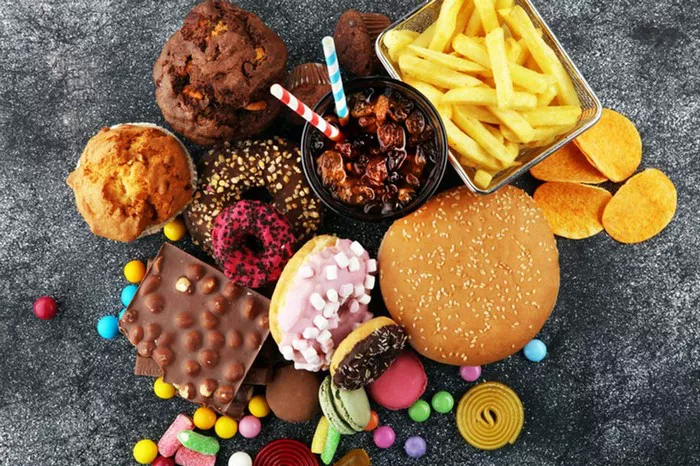High blood sugar, or hyperglycemia, is a common issue for people with diabetes and can lead to serious health complications if not managed effectively. Diet plays a crucial role in controlling blood glucose levels and maintaining overall health. This article delves into the foods that are beneficial for those looking to manage high blood sugar, emphasizing balanced meals, low glycemic index foods, fiber-rich options, lean proteins, healthy fats, and the importance of hydration.
Understanding High Blood Sugar
High blood sugar occurs when the body has insufficient insulin or cannot use insulin effectively. Insulin is a hormone that helps glucose enter cells to be used for energy. When this process is disrupted, glucose accumulates in the bloodstream. Consistently high blood sugar levels can damage blood vessels and nerves, leading to complications such as cardiovascular disease, kidney damage, and neuropathy.
Balancing Your Plate
Creating balanced meals is fundamental in managing blood sugar levels. A balanced plate includes appropriate portions of carbohydrates, proteins, and fats, along with a variety of vitamins and minerals.
Portion Control
Portion control helps prevent overeating and ensures a steady release of glucose into the bloodstream. The Plate Method is an effective strategy:
- Fill half your plate with non-starchy vegetables (e.g., spinach, broccoli, bell peppers).
- One-quarter with lean protein (e.g., chicken, fish, tofu).
- One-quarter with whole grains or starchy vegetables (e.g., brown rice, sweet potatoes).
Low Glycemic Index Foods
The glycemic index (GI) measures how quickly a food raises blood sugar levels. Low-GI foods are digested and absorbed more slowly, leading to a gradual increase in blood sugar.
Examples of Low-GI Foods
- Non-Starchy Vegetables: Spinach, kale, broccoli, and cauliflower are excellent choices as they are low in carbohydrates and calories while high in fiber and essential nutrients.
- Whole Grains: Foods like quinoa, barley, and steel-cut oats have a lower GI compared to refined grains.
- Legumes: Beans, lentils, and chickpeas are rich in fiber and protein, making them great for blood sugar management.
- Fruits: Opt for fruits like berries, apples, and pears which have a lower GI than tropical fruits like pineapples and mangos.
Fiber-Rich Foods
Dietary fiber slows the absorption of sugar and helps improve blood sugar levels. There are two types of fiber: soluble and insoluble. Soluble fiber dissolves in water to form a gel-like substance, which helps slow digestion. Insoluble fiber adds bulk to stool and helps food pass more quickly through the stomach and intestines.
Sources of Soluble Fiber
- Oats and Barley: These whole grains are excellent sources of soluble fiber.
- Legumes: Beans, lentils, and peas provide substantial amounts of fiber.
- Fruits: Apples, berries, and citrus fruits are high in soluble fiber.
Sources of Insoluble Fiber
- Whole Grains: Brown rice, whole wheat bread, and bran cereals.
- Vegetables: Carrots, cucumbers, and celery.
- Nuts and Seeds: Almonds, flaxseeds, and chia seeds.
Lean Proteins
Protein helps stabilize blood sugar by slowing the absorption of carbohydrates. Choosing lean protein sources is essential to avoid excess fat, which can contribute to insulin resistance.
Healthy Protein Sources
- Poultry: Skinless chicken and turkey are lower in fat.
- Fish: Salmon, mackerel, and sardines are rich in omega-3 fatty acids, which are beneficial for heart health.
- Plant-Based Proteins: Tofu, tempeh, and legumes are excellent for those following a vegetarian or vegan diet.
- Low-Fat Dairy: Greek yogurt, cottage cheese, and milk provide protein and calcium.
Healthy Fats
Healthy fats can improve blood sugar control and reduce the risk of heart disease. It’s important to choose unsaturated fats and limit saturated and trans fats.
Sources of Healthy Fats
- Avocados: High in monounsaturated fats and fiber.
- Nuts and Seeds: Almonds, walnuts, flaxseeds, and chia seeds.
- Olive Oil: A great source of monounsaturated fat, ideal for cooking and salads.
- Fatty Fish: Salmon, trout, and herring contain beneficial omega-3 fatty acids.
Hydration
Staying hydrated is crucial for managing blood sugar levels. Dehydration can cause blood sugar levels to spike. Drinking water helps the kidneys flush out excess glucose through urine.
Healthy Hydration Tips
- Water: The best choice for hydration.
- Herbal Teas: Unsweetened herbal teas can add variety.
- Avoid Sugary Drinks: Sodas, energy drinks, and sweetened teas can cause blood sugar spikes.
Meal Timing and Frequency
Eating regular meals and snacks can help maintain steady blood sugar levels. Skipping meals can lead to large swings in blood sugar levels.
Tips for Regular Eating
- Consistent Meal Times: Eat at the same times each day.
- Balanced Snacks: Choose snacks that combine protein and healthy fats, such as an apple with peanut butter or a handful of nuts.
Special Considerations for Different Diets
Different dietary approaches can be tailored to manage high blood sugar effectively. Here are some popular diets and how they can be adapted for diabetes management.
Mediterranean Diet
The Mediterranean diet emphasizes whole foods, healthy fats, and lean proteins. It has been shown to improve blood sugar control and reduce the risk of cardiovascular disease.
- Focus on Plant-Based Foods: Vegetables, fruits, nuts, seeds, legumes, and whole grains should form the bulk of your diet.
- Healthy Fats: Olive oil and fatty fish are key components.
- Lean Proteins: Include poultry, fish, and plant-based proteins.
Low-Carb Diet
A low-carb diet can help reduce blood sugar levels and improve insulin sensitivity. It typically involves reducing intake of carbohydrates and replacing them with protein and fats.
- Limit High-Carb Foods: Avoid refined grains, sugary foods, and starchy vegetables.
- Increase Protein and Fats: Include more lean proteins and healthy fats.
- Choose Low-Carb Vegetables: Leafy greens, broccoli, and cauliflower.
Plant-Based Diet
A plant-based diet focuses on whole, minimally processed plant foods. It can be beneficial for managing diabetes due to its high fiber content and low glycemic load.
- Whole Grains and Legumes: These provide protein and fiber without raising blood sugar levels excessively.
- Vegetables and Fruits: Emphasize non-starchy vegetables and low-GI fruits.
- Nuts and Seeds: These are good sources of healthy fats and protein.
The Role of Supplements
Some supplements can help manage blood sugar levels, but they should not replace a balanced diet. Always consult with a healthcare provider before starting any new supplements.
Common Supplements for Blood Sugar Control
- Chromium: May improve insulin sensitivity and glucose metabolism.
- Magnesium: Low levels are linked to insulin resistance; supplementation may help.
- Alpha-Lipoic Acid: An antioxidant that can improve insulin sensitivity.
- Cinnamon: Some studies suggest it may lower blood sugar levels.
Lifestyle Factors
In addition to diet, several lifestyle factors can influence blood sugar management.
Exercise
Regular physical activity helps improve insulin sensitivity and lower blood sugar levels. Aim for at least 150 minutes of moderate-intensity aerobic exercise per week, such as brisk walking, swimming, or cycling. Strength training exercises also help build muscle and improve glucose metabolism.
Stress Management
Chronic stress can affect blood sugar levels. Techniques such as mindfulness, meditation, deep breathing exercises, and yoga can help manage stress.
Adequate Sleep
Poor sleep can disrupt insulin function and increase blood sugar levels. Aim for 7-9 hours of quality sleep per night.
Monitoring Blood Sugar Levels
Regular monitoring of blood sugar levels is essential for managing diabetes. Use a glucometer to check your blood sugar levels as advised by your healthcare provider. Keeping a log of your readings can help you and your healthcare team make informed decisions about your diet and lifestyle.
Conclusion
Managing high blood sugar through diet involves making informed food choices, balancing your plate, and incorporating regular physical activity. By focusing on low glycemic index foods, fiber-rich options, lean proteins, healthy fats, and staying hydrated, you can effectively control blood sugar levels and improve your overall health. Remember, it’s essential to work with your healthcare team to develop a personalized plan that fits your needs and lifestyle. Regular monitoring and adjustments to your diet and lifestyle can lead to better blood sugar management and a healthier life.
Related topics:
What to Eat When Your Blood Sugar Drops?
What is the Best Food for High Blood Sugar?
What Foods Should People with Diabetes in the UK Avoid Eating?

























